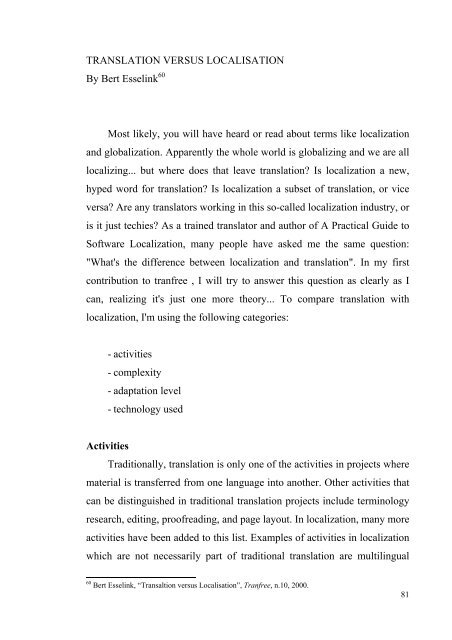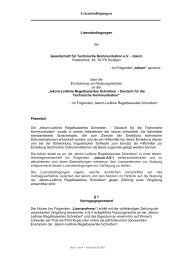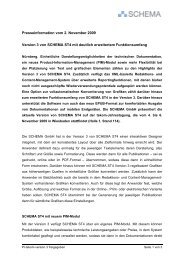qui - Tekom
qui - Tekom
qui - Tekom
You also want an ePaper? Increase the reach of your titles
YUMPU automatically turns print PDFs into web optimized ePapers that Google loves.
TRANSLATION VERSUS LOCALISATION<br />
By Bert Esselink 60<br />
Most likely, you will have heard or read about terms like localization<br />
and globalization. Apparently the whole world is globalizing and we are all<br />
localizing... but where does that leave translation? Is localization a new,<br />
hyped word for translation? Is localization a subset of translation, or vice<br />
versa? Are any translators working in this so-called localization industry, or<br />
is it just techies? As a trained translator and author of A Practical Guide to<br />
Software Localization, many people have asked me the same question:<br />
"What's the difference between localization and translation". In my first<br />
contribution to tranfree , I will try to answer this question as clearly as I<br />
can, realizing it's just one more theory... To compare translation with<br />
localization, I'm using the following categories:<br />
Activities<br />
- activities<br />
- complexity<br />
- adaptation level<br />
- technology used<br />
Traditionally, translation is only one of the activities in projects where<br />
material is transferred from one language into another. Other activities that<br />
can be distinguished in traditional translation projects include terminology<br />
research, editing, proofreading, and page layout. In localization, many more<br />
activities have been added to this list. Examples of activities in localization<br />
which are not necessarily part of traditional translation are multilingual<br />
60 Bert Esselink, “Transaltion versus Localisation”, Tranfree, n.10, 2000.<br />
81
















